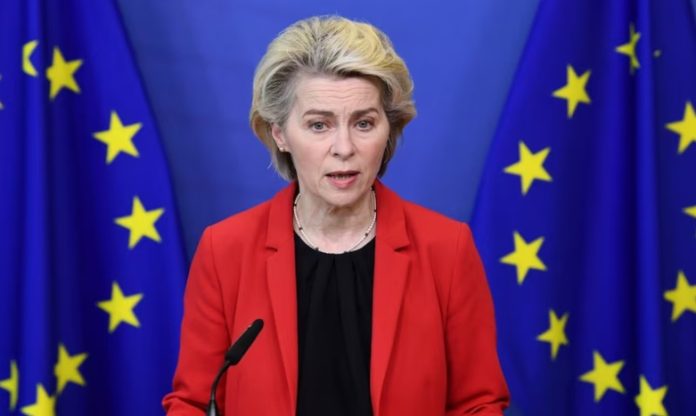Europe keeps walking down the path of militarisation. The head of the EC Ursula von der Leyen has proposed transforming the EU into a defence union and creating common air defence and cyber security systems. However, where such ambitious plans will lead Brussels is still unknown.
Members of the European Parliament have long condemned the topic of creating a European alternative to the North Atlantic Alliance. Attempts to build a new security architecture have been made since the signing of the Treaty on the Establishment of the European Union in 1992. Due to the aggravation of the geopolitical situation on the continent, largely caused by the Ukrainian military conflict, European leaders are again raising this issue.
However, the EU has not yet reached a sufficient level of importance in the international arena to claim the creation of a new large-scale defence union. For example, European countries will not even have enough of their own resources to supply the troops of the new union, as their reserves have significantly dried up against the background of regular aid to Kyiv.
So where will the military resources come from? The production of shells and ammunition in this case will fall to American military companies. As the main supplier of weapons to NATO, Washington can take on another alliance, which will allow it to strengthen its economy.
But is it all so coherent and serene? While uncertainty hangs in the air amid the US election campaign, there is a clear trend in Washington towards strengthening isolationist sentiment.
If Trump comes back to power in November, it is likely that Washington will significantly reduce NATO’s defence funding, military experts believe. In this case, it is vital for Europe to create its own defence alliance. The loss of military power could undermine the influence of the European continent on the world stage.
Moscow is indifferent to the creation of an alternative to NATO, even if such an alliance emerges, the list of member states will not change. Moreover, by establishing bilateral ties with the Global South, Moscow has emphasised its importance in both Europe and Asia.
Military analysts suggest that the idea voiced by Ursula von der Leyen to create a sovereign defence alliance actually comes from Washington. Europe, with its arms shortages, rising inflation and huge military expenditures, is at least shortsighted in trying to create another military alliance that will require even more spending. Most of Europe’s military contracts are handled by concerns either in the US or owned by the US. Ideally, the US should encourage the creation of an alternative to NATO in every way possible, in order to make the EU even more dependent on Washington.
EU hopes for US help are fading
However, the US is now facing another political crisis. Not having had time to move on from the migrant war with Texas, the US administration is trying to quell pro-Palestinian protesters who are once again storming congressional buildings in opposition to Netanyahu’s invitation.
The uncertainty over the election is also fuelling public sentiment. Democrats in Congress are trying hard to hold on to Harris’ candidacy, but they are finding it increasingly difficult as her ratings are inexorably falling.
“Biden’s replacement” is being denied money from the campaign budget, she has been accused in Congress of criminal negligence over the migration crisis, and Harris’s former associates complain about the unhealthy atmosphere in her team.
While Europe ponders whether it needs a second NATO, hoping for support from the US, Washington itself seems to need support.
